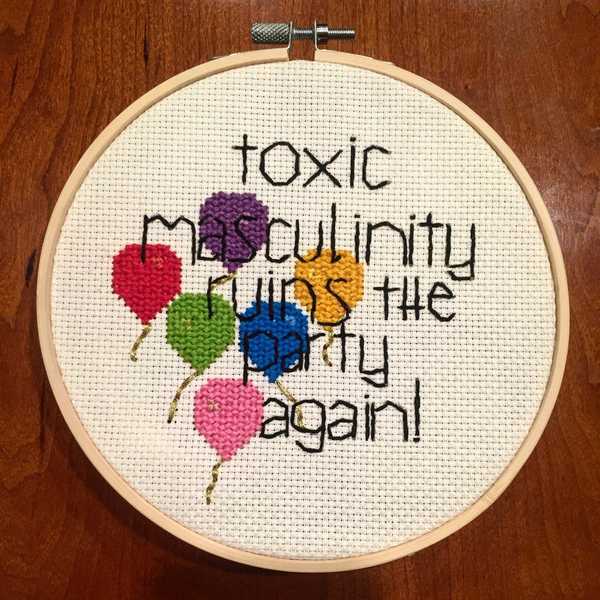By now, many have probably—hopefully—noticed that millennials are experiencing unprecedented rates of reported and undocumented mental health issues, more so than any generation that came before.
Now I'm no sociologist, but my theory is not simply that the baby boomers are just all bad parents. Since psychology is such a young science, it seems like many of our parents were unaware of the signs that characterize mental health issues and had a corresponding lack of knowledge of what to do if their child was diagnosed.
Although the reality of the current mental health epidemic is staggering, recovery starts after acceptance, and with that, abandoning blame and "what-ifs." With that being said, millennials are still stuck with memories marred by mental unrest and the psychological effects that this kind of an environment fosters.
As a 22-year-old person, I am no exception to that.
In 2015 as a sophomore in college, I visited a counselor for the first time and was diagnosed with PTSD almost immediately. It also became clear pretty quickly that it had been there for a while.
Although, from childhood, I remember having episodes of extreme mood swings; events that only happened because I had a violent impulse and punched somebody, inconveniently disassociated from reality until I blacked out, or fantasized about death at the slightest inconvenience. I lived in a constant fog that muted my emotions until they burst out of me in dangerous fits of energy, making me totally out of anyone's control, including my own.
From the time I was about seven years old, my mind was not my own, and fear dictated a lot of my decisions and actions.
I would have vivid fantasies about violence about as much as, if not more than, sex fantasies since my fight or flight instinct was almost constantly engaged. All that energy affected my sexual drive, too, as PTSD will if left unchecked for too long, so all of my earlier exploits were far from safe or healthy.
That fear affected my sleep, too.
I grew up with chronic sleep paralysis, having episodes almost four times a week. During sleep paralysis, the body remains physically asleep, which creates the feeling of palatalization, but the mind remains active and aware. So, while the person goes through the REM cycle or rapid-eye-movement, the eyes are open just enough for nightmares to come alive in their very bedroom.
Each night I dreamt of a huge, hairy arachnid with a man's face and insane smile while I was powerless to do anything. Every night I felt that if I could just scream, or even twitch a finger and get someone to wake me up, I'd be safe again. But it never happened, and I would dread going to sleep every day in fear that he would come back to haunt me again.
I didn't know how to tell anyone about it, so I assumed that I was being punished by God for being gay and had been possessed by a demon.
The anxiety, too, was unspeakable.
Unable to articulate the complexity of my struggles, I developed excoriation, or skin-picking, to relieve some of the pent-up stress I carried with me always. I obsessed over making the surface of my skin and the inside of my mouth smooth and free from imperfections.
I would rip off whole nails in one fatal swoop if I found an imperfection, pick scabs until they left gaping holes in my skin and scars still visible today, and bite the tissue on my cheeks until eating seemed impossible. As not-so-disgusting as that all sounds, it actually didn't help me at all on the social front.
All of this unsettled emotion that quite literally strapped me to my bed every night stayed constant until young-adulthood when it got to the point where couldn't leave my house anymore for fear of being attacked. Shortly after, I started hallucinating in broad daylight instead of in the comfort of my own home while I slept.
The day I saw two fully-equipped zombies in the back seat of my car, mouths gaping, clothes greying and my whole car stinking of rotting flesh, I knew it was time to get into counseling.
Three years down the line, after a lot of sweat, tears and, yes, blood, I consider myself to be 100% healthy and free from PTSD. But I can't pretend that my life would've been the same if I had gotten the help I needed at a much younger age.
Now I'm obsessed with making sure my kids have a healthy and happy childhood, and I know a lot of my fellow millennials feel the same way. With this, we need to do everything we can now to raise awareness and patron resources for mentally ill people in hopes that Generation Alpha aren't half as afraid of the monster-under-the-bed as I was.



















